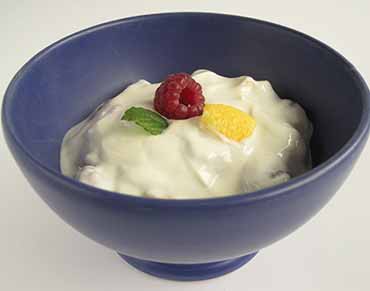Nutrition impact on mental health
See: Drug Addiction
It’s common
knowledge that dietary habits may have significant effects on our health. A new
study from the UCLA Health researches,
however, shows how nutrition can also alter our psychological and emotional
behavior other than just our physical health. In their small trial, researchers
found that eating yogurt may affect brain function by altering the gut
bacteria’s balance1.
See: Triangle Pose in Yoga – Trikona Asana for Digestion & Anxiety
The brain-gut axis connection
Several
studies found a strict connection between
the central nervous system and the gastrointestinal system, in what is called
the “brain-gut axis.” Common negative emotions such as stress or
anxiety may have as a consequence several reactions in the gut, such as
constipation, gastritis, and diarrhea. The human intestine contains and an incredible
number of bacteria called microflora, whose complex interactions may
affect several aspects of our physiological as well as emotional health2.
The individual’s microflora profile may be
altered by the ingestion of
several foods, especially those that include
living organisms inside them such as yogurt.
See: Naturopathy assisted me in my chronic illness and anxiety disorder.
Science & Research on probiotics & brain health
Dr. Kirsten
Tillisch, the lead author of the UCLA
study, found that neurological signals aren’t
unidirectional from the brain to the gut. They go back and forth between them,
so they tried to alter these signals with a probiotic yogurt-based diet. The
brain state of the 36 women who participated in the study were analyzed prior
and before the test through functional magnetic resonance imaging (fMRI). The
researching team found that women who consumed the probiotic food showed an increased
activity in the brain nuclei that are
responsible for processing visceral
feelings. These women also showed improved
network connections in cognitive and sensitive areas of the brain, although the
exact consequence of this activity is still unknown.
Authors
Dr.
Claudio Butticè, PharmD.
Milk vs Yogurt difference for health
Your body constantly works to maintain a healthy balance. Including balancing acidity and alkalinity, also referred to as pH levels. Your body closely controls the pH level of fluids like blood and digestive juices. Blood has a pH variety of 7.35 to 7.45. This makes it slightly alkaline or basic. Stomach acid’s low pH of approximately 3 to 5.5 helps the stomach digest the food you eat and protect you from external germs & bacteria. The pH scale has a range from 0 to 14, with a neutral value of 7 (pure water has a pH of 7). If the ph value is below 7, it is known to be acidic, and if greater than 7, it is called alkaline.
The pH scale is a logarithmic scale, meaning that a difference of one really changes the concentration by a factor of 10. For example, a pH value of 4 is ten times more acidic than a pH value of 5. Similarly, a pH of 7 is 10 times more alkaline than a ph reading of 8. Your body is good at maintaining pH levels stable. Diet can temporarily change your body’s overall pH level. Some foods can make it slightly more acidic. Other foods can help keep it alkaline.
But eating a balanced diet won’t significantly impact pH levels if you are otherwise healthy. Milk is a favorite beverage that’s hotly debated concerning the pros and cons of your wellbeing. Choice milk, such as nut milk or soy milk, are often touted for their health benefits over conventional dairy. It’s important to learn where these beverages fall on the pH scale and what you ought to know about how they affect your body’s equilibrium.
Yogurt is made by including bacterial cultures to pasteurized, homogenized milk. The bacteria convert lactose in the milk into lactic acid. This reaction makes it acidic, with a pH value of 4-5.
Yogurt, though acidic in character, is a low acid-forming food since it doesn’t influence the acid-alkaline equilibrium of the body.
Yogurt has probiotics or good bacteria: Bad bacteria in the gastrointestinal tract are among the causes of acid reflux. Probiotics are germs (certain bacteria and yeasts), which are great for the body. These probiotics or good bacteria’ stop the undesirable bacteria from growing quickly. Probiotics may help in reducing inflammation of the gut due to acid reflux.
Yogurt Is Easier To Digest: The bacteria release an enzyme in the stomach, which makes it easier to break down lactose. Due to its sugar content, lactose is not easy to digest.







